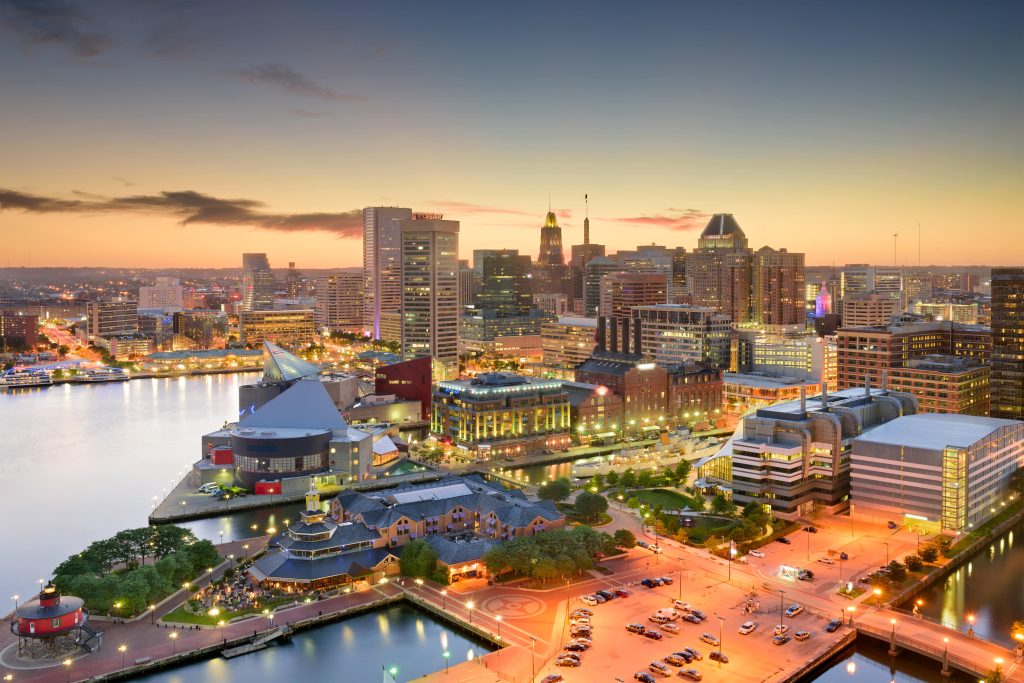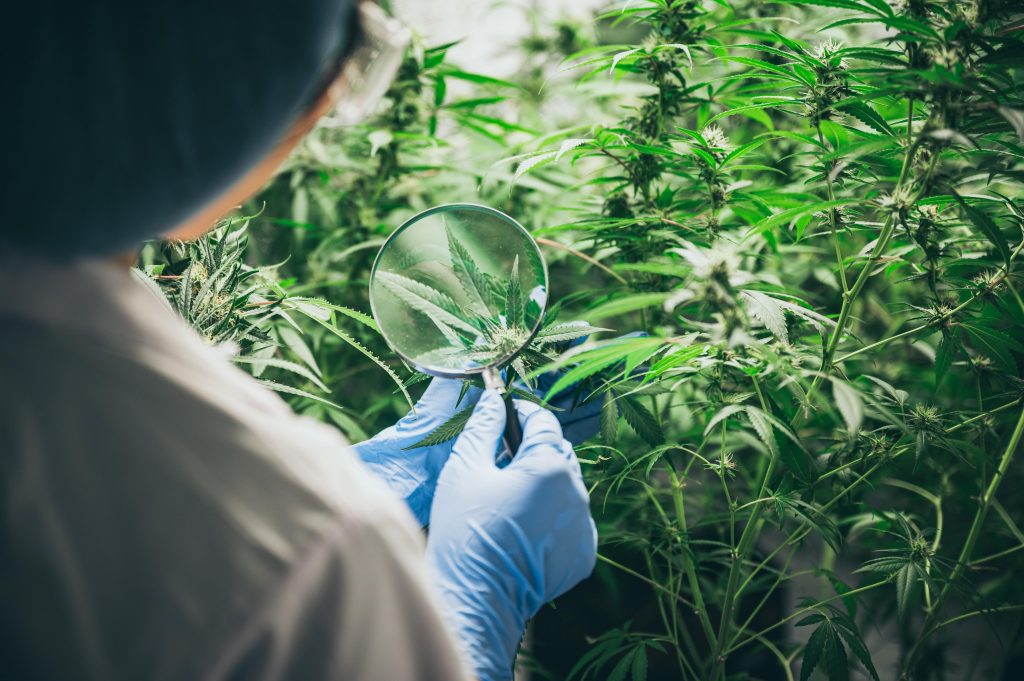
 Verified
Verified






















As of July 2023, both medical and recreational marijuana are legal in the state of Maryland. Adults over the age of 21 can now walk into any licensed dispensary and purchase the cannabis products of their choice.
But for some people, obtaining a medical cannabis card is still the better option — and in Maryland, it’s very easy to do.
Ready to learn more?
Here’s everything you need to know about Maryland’s medical marijuana program. We’ll cover how to find local medical marijuana doctors, the state’s cannabis possession, use, and grow laws, as well as how to apply for a medical cannabis card.
Marijuana is legal in Maryland for both medical and recreational use.
Medical cannabis became legal in 2014, and the state created the Maryland Medical Cannabis Commission (MMCC) to oversee the program. Recreational cannabis for adult use became legal on July 1, 2023, and is now monitored and regulated through the Maryland Cannabis Administration (MCA).
Currently, there are 101 dispensaries in Maryland that are licensed to sell marijuana products, with more than 25 licensed dispensaries in Baltimore County alone.
Dispensaries can be found in more than 48 cities across the state, including:
See this map for a complete list of all dispensaries licensed by the Maryland Cannabis Administration.
Even though recreational cannabis is legal, there are three key reasons why some people may still wish to obtain a medical marijuana card:
Yes, you must see a doctor to get a physician’s certification for a medical marijuana card. This is a standard that exists in almost every state.
Visit Marijuana Doctors now to find a local cannabis doctor and begin the process.
While some states restrict telemedicine appointments and virtual consultations for medical marijuana, Maryland allows them. Maryland makes it extremely easy to meet with a doctor for a cannabis certification and begin the process of obtaining your card.
Check Out: A Closer Look at the Safety Concerns Regarding Vaping Cannabis

The first step in getting approved for a card is to get certified by a medical professional, which requires having one of the following qualifying medical conditions:
Adults over the age of 21 who don’t have a qualifying condition are not eligible to apply for a medical marijuana card.
In addition to having a qualifying condition, applicants must meet a few additional eligibility requirements. You must:
If you meet the eligibility requirements and are ready to apply for a medical cannabis card in Maryland, here’s a step-by-step look at the process from start to finish.
Once you receive your card, you can legally purchase cannabis at an in-state dispensary. Keep in mind that you must do so within the first 120 days of certification for your card to remain valid. Failure to make a medical purchase within the first 120 days renders your certification null and void.
The Maryland Medical Cannabis Administration approves requests rather quickly. Depending on how many applications are in process at the same time, you may be able to get your card in as little as three days.
The good news for both medical and adult use consumers is that there are a wide variety of marijuana products available throughout the state of Maryland. In most dispensaries, you’ll find:
When you visit a dispensary, be sure to have your MMCC marijuana card as well as a government-issued photo ID with you. If you don’t have your card with you, your only purchase option will be “adult use” cannabis, which is subject to Maryland’s 9% sales tax.
Shopping for cannabis products in Maryland is as easy as can be, with dispensaries offering in-store purchases as well as online orders available for quick pick up.
Read About: First-Time Grower’s Toolkit: Setting Up for Success in Growing Cannabis

Despite the legalization of recreational cannabis for adults, Maryland still has laws in place regarding the possession, growth, and use of marijuana in the state.
Here’s a look at the current state laws that all users, including medical patients, should be aware of.
Individuals with medical marijuana cards can possess a lot more than those without one. In fact, they are allowed to possess almost three times the maximum amount allowed for non-medical, adult users.
As long as you have a medical card, you may legally possess up to a thirty-day supply of marijuana as prescribed by your doctor. Your physician won’t just certify that you have a qualifying medical condition — they’ll also determine how much your monthly supply should be.
The standard supply is 120 grams of dried flower or 36 grams of THC products in other forms, such as edibles, oils, or lotions. The supply amount that you’re allowed to possess at one time is calculated on a rolling thirty-day calendar cycle. In other words, you are allowed to possess a full thirty-day supply every single day.
Without a medical marijuana card, the possession limit is much lower. It is legal for recreational users in Maryland to possess:
If you don’t have a medical marijuana card and are found to be in possession of more than 1.5 ounces of dried flower, the penalties are stiff.
People in possession of between 1.5 and 2.5 ounces are subject to a $250 civil fine for their first offense. Possessing anywhere between 2.5 ounces and 50 pounds may result in a $1,000 fine, as well as up to one year in jail. Possession of more than 50 pounds is a felony with a maximum penalty of five years in jail and up to a $100,000 fine.
Whether you purchase recreational marijuana or medical cannabis products, be sure that you don’t possess more than the state allows at any given point in time.
It is legal to grow cannabis plants in Maryland, but it depends on where you live.
Adults over the age of 21 can legally grow two plants in their home. Medical patients can grow up to four plants in their residence.
Keep in mind that if you rent, you may not be able to grow any plants at all. Landlords have the right to restrict or prohibit tenants from growing cannabis on their property. If your landlord allows you to do so, be sure to get written permission as proof that you’re not breaking your lease.
Maryland law prohibits the use of marijuana products in public places. It is only legal to use cannabis in private homes and on private property.
However, like grow laws, usage laws may be different if you rent. Landlords have the right to prohibit both the use and growth of marijuana on their property.
Aside from Maryland state laws, there is one key federal law to keep in mind as well:
It is never legal to use cannabis products while driving or operating a motor vehicle, even if you have a valid medical marijuana card.
Just because marijuana is legal in Maryland doesn’t mean you can use it at work, or on the way to work. Cannabis users are subject to their employer’s workplace policies regarding marijuana use, and policies vary from employer to employer.
The current Maryland laws on cannabis use do not speak to the issue of whether employers can drug screen their employees or potential hires. At this point in time, drug screenings are at the sole discretion of the employer.
With its close proximity to Washington D.C., Maryland is among the U.S. states with the highest number of federal employees. It is crucial that federal employees, as well as anyone applying for a federal job, be aware of how cannabis use might impact their current and/or future employment.
Historically, federal employees have been prohibited from cannabis use, even in states where recreational marijuana is legal. However, things could soon change. The House Oversight and Accountability Committee voted in September 2023 to move forward with the CURE bill — the Cannabis Users’ Registration of Eligibility Act.
Although there is no guarantee that this bipartisan bill will be signed into law, Maryland representative Jamie Raskin, the bill’s sponsor, said that it would prevent “marijuana use from becoming grounds for being found unsuitable for federal employment or failing to receive a security clearance.”
In the meantime, current and prospective federal employees should remain mindful that cannabis use of any kind could still impact their employment with the federal government.
To provide medical marijuana certifications in Maryland, physicians must first register with the Provider Registry through the MMCC. All physicians are eligible to do so if they have an active, unrestricted license in good standing with the state licensing board. They must also be registered with the DEA to prescribe controlled substances.
Once registered, cannabis physicians are required by law to have a legitimate provider-patient relationship. The physician must know the patient’s medical history before they can prescribe cannabis as an approved treatment option.
To learn more about medical cannabis as a treatment option, physicians can obtain CME credits by taking the Medical Use of Cannabis Course offered through TCMI Global.
Though the recreational use of marijuana is now legal in Maryland, there are still several benefits of having a medical marijuana card, and it’s easy to do.
If you’re ready to apply for your medical cannabis card in Maryland, connect with Marijuana Doctors now to find licensed healthcare providers in your area.
Up Next: THC Lean: Do Cannabis-Infused Syrups Have Legitimate Medical Benefits?